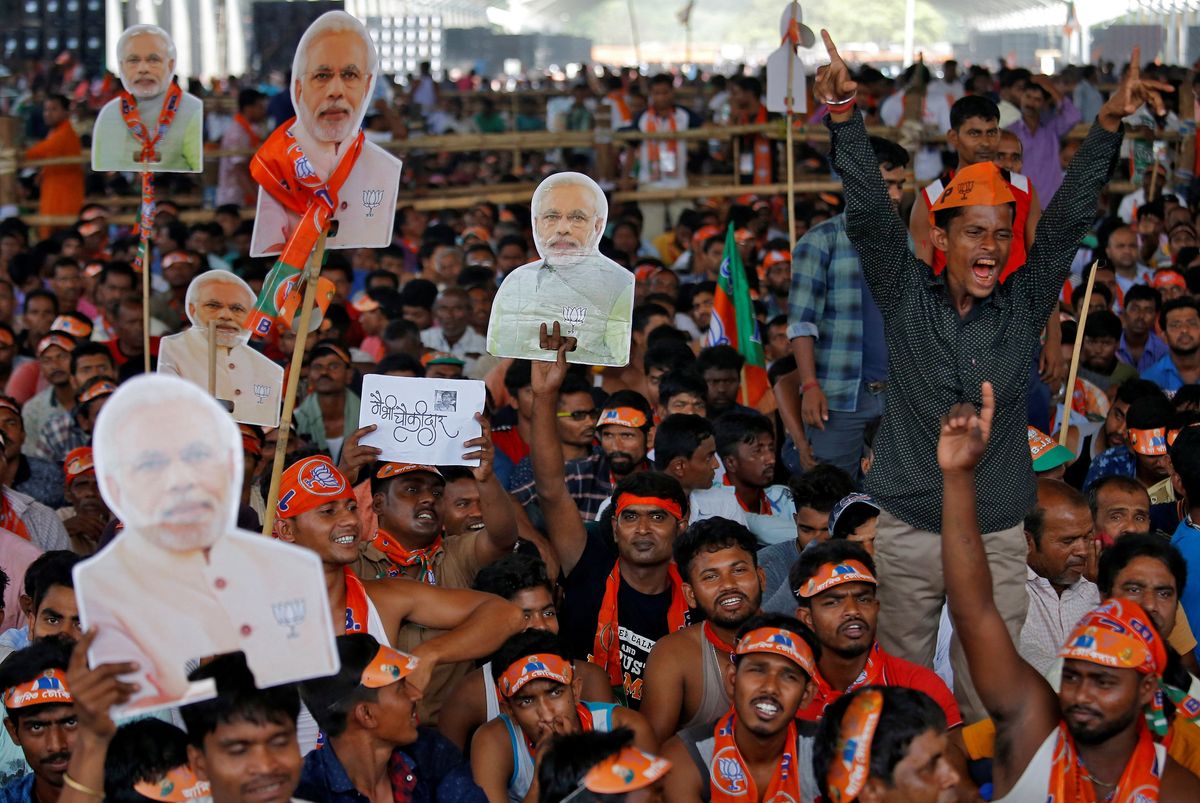How do you hold an election with 900 million voters? India's about to do just that starting today, with the opening of its 2019 national election.
It's the biggest democratic exercise in history, and the logistics are staggering.
How does it happen? For ease of voting, the country is divided into seven distinct geographical groups with each casting ballots every few days.
How long does it take? The full process takes 6 weeks, and the final results aren't expected until May 23.
How do you make sure everyone votes? All ballots are cast electronically. Indian law mandates that polling stations must be set up within 2 kilometers of every home, meaning a total of 1.72 million voting machines will be put to use. About 11 million election monitors will fan out across India's villages, glaciers and jungles to observe voting.
Election dynamics: The poll is a crucial test of the staying power of current Prime Minister Narendra Modi. Back in 2014, his unique brand of conservative, Hindu-based nationalism propelled his BJP party to the first outright parliamentary majority in decades, leaving the long-ruling Congress Party in tatters. Modi's first term was marked by a controversial crackdown on illicit cash stockpiles and a steady push to put Hinduism at the center of national life.
But the outlook for Modi might not be so rosy this time around. While India is currently the world's fastest growing large economy, many voters feel the fruits of that growth haven't been shared evenly. Pocketbook issues dominate voters' concerns, with 78 percent listing development, price rises, or unemployment as the top election issue. The BJP is also seeing a strong challenge from the opposition Congress Party and a number of regional parties whose support they will need to hold onto power.
That said, a recent military standoff with neighboring Pakistan sent Modi's poll numbers to historic highs. The episode "put national security on the agenda in mass electoral politics in a way that it isn't usually," Milan Vaishnav of the Carnegie Endowment told Signal. Will that be enough to overcome voters' misgivings about the economy?
One key factor we're watching closely is turnout. The general consensus is that if we see something like the record high turnout achieved in 2014, the BJP – which enjoys high support among young and new voters – will be off to a good start. About 84 million Indians are expected to cast their first-ever vote in this year's election.
What's at stake? After five years of Modi's rule, Indians get to decide whether to double down on his vision for political and economic reform or to pitch the country in an entirely different direction.
For a deeper dive on India's important election, check out this fascinating report.





